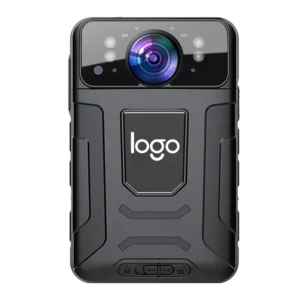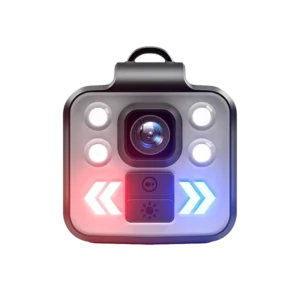Recently, Canadian retail giant Loblaw Cos. Ltd confirmed that the company is expanding the coverage of its pilot program for employees to wear body-worn cameras.
After launching in Alberta and Saskatchewan last year, the program has now been expanded to Ontario, British Columbia and Manitoba to further evaluate its impact on violence in retail environments.
In recent years, violent incidents in Canada’s retail industry have occurred frequently, especially since the COVID-19 pandemic, when the incidence of retail violence has been on the rise. The Retail Council of Canada has also warned that more and more retailers have reported the presence of “violent individuals” in their stores, posing a threat to the safety of employees and customers.
In response to this trend, Loblaw said the company hopes to reduce in-store violence and improve its ability to handle escalated conflicts by having employees wear body cameras.
“Preliminary results from our pilot program suggest that body cameras may help reduce incidents of violence, but we need to conduct a more extensive, longer-term evaluation across more stores and brands to fully measure their impact,” a Loblaw spokesperson said in an email.
At present, Loblaw has not yet clarified which specific retail brands and stores will participate in the pilot project, but has confirmed that these devices will be limited to selected stores rather than being fully promoted in all its brand stores.
This means that some stores of brands such as Loblaws supermarkets and Shoppers Drug Mart pharmacies may participate in the test, but not all of them will be applied.
Regarding the specific implementation method, Loblaw said that only trained asset protection representatives, external security personnel, store managers and other applicable team members will wear law enforcement recorders.
The device will not record 24 hours a day, but will only be activated when employees face escalating conflicts and safety risks, and the wearer needs to clearly inform the on-site personnel when turning on the device.
Loblaw stressed that the ultimate goal of the pilot program is to keep employees and customers safe and improve the overall safety of the retail environment.
“The safety of our customers, employees and stores is always our top priority. The expansion of this pilot program highlights our commitment to creating a safer shopping environment,” said a Loblaw Companies spokesperson.
Loblaw is still evaluating the impact of body cameras on conflict management and has not yet decided whether to roll out the program nationwide. But as retail violence continues to increase, this practice may become a safety precaution that more retailers will learn from.
Industry insiders believe that if the pilot project can prove that law enforcement cameras are indeed effective in reducing violent incidents, more companies may follow suit in the future, and may even prompt governments or industry organizations to formulate corresponding safety standards to promote the wider use of law enforcement cameras in the retail industry.
More details about Body Worn Camera
What is a body worn camera?
Body Worn Video (BWV) cameras are small, visible devices worn attached to the officers’ uniform (usually on the chest). They’re used to capture both video and audio evidence when officers are attending all types of incidents. They’re issued to all officers who come into contact with the public.
Can I wear a body worn camera?
It is not illegal for a civilian to purchase and wear a body worn camera, but there are laws and restrictions for engaging the device and recording other individuals with it, both via the video and audio functions.
What are the benefits of body worn cameras?
Police body cams can bolster public trust by providing community members with better transparency into police actions. Police body cams can also allay citizen concerns by providing clear documentation of encounters to shore up police officers’ versions of events.
What is one advantage of a body-worn camera?
The benefits of body-worn cameras extend beyond policing; private security teams can use body-worn cameras to protect their officers, deter crime (e.g. theft in retail spaces) and ensure that the truth is captured if an incident does take place.




